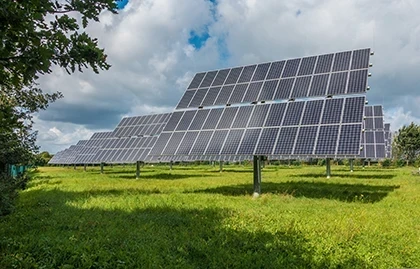New Solar Maker Enters U.S. Market

NuVision Solar, an American-owned and operated manufacturer of solar cells and modules, has announced its entry into the North American market. This strategic move aims to bolster domestic solar manufacturing and reduce reliance on imported solar components.
Background
The U.S. solar industry has experienced significant growth in recent years, driven by increasing demand for renewable energy and supportive government policies. However, the sector has also faced challenges, including supply chain disruptions and a heavy dependence on imported solar components, particularly from countries like China. This reliance has raised concerns about energy security and the resilience of the domestic solar supply chain.
NuVision Solar's Entry into the U.S. Market
NuVision Solar's decision to enter the U.S. market is a response to these challenges. By establishing operations within the United States, the company aims to:
-
Enhance Domestic Manufacturing: Increase the production capacity of solar cells and modules within the U.S., contributing to the growth of the domestic solar industry.
-
Create Jobs: Generate employment opportunities in manufacturing, research and development, and other related sectors.
-
Strengthen Energy Security: Reduce dependence on imported solar components, thereby enhancing the resilience of the U.S. energy infrastructure.
Industry Context
NuVision Solar's entry into the U.S. market aligns with a broader trend of increasing domestic solar manufacturing. Several international companies have announced plans to establish or expand manufacturing facilities in the United States:
-
Trina Solar: Invested $200 million to build a solar module production plant in Wilmer, Texas, with a designed annual capacity of 5 GW.
-
Heliene and Premier Energies: Collaborated to build a 1-gigawatt solar cell factory in Minneapolis, Minnesota, aiming to commence production in the second quarter of 2026.
-
TOYO: Announced plans to establish a 2 GW solar module manufacturing plant in the United States, with production estimated to begin by mid-2025.
These developments reflect a concerted effort to strengthen the U.S. solar manufacturing sector and reduce reliance on foreign imports.
Implications for the U.S. Solar Industry
The entry of NuVision Solar and other manufacturers into the U.S. market has several potential implications:
-
Supply Chain Resilience: Diversifying the supply chain by increasing domestic production can mitigate risks associated with global supply chain disruptions.
-
Economic Growth: Expansion of the solar manufacturing sector can stimulate economic growth through job creation and increased industrial activity.
-
Competitive Advantage: A robust domestic manufacturing base can enhance the competitiveness of U.S. solar products in both domestic and international markets.
Challenges Ahead
Despite the positive outlook, several challenges remain:
-
Market Competition: The U.S. solar market is highly competitive, with established players and ongoing price pressures.
-
Regulatory Environment: Navigating the complex regulatory landscape, including tariffs and trade policies, will be crucial for new entrants.
-
Technological Advancements: Keeping pace with rapid technological advancements in solar technology will require continuous investment in research and development.
NuVision Solar's entry into the U.S. market represents a significant step toward strengthening domestic solar manufacturing and enhancing energy security. As the industry continues to evolve, collaboration among manufacturers, policymakers, and stakeholders will be essential to address challenges and capitalize on opportunities in the growing renewable energy sector.








